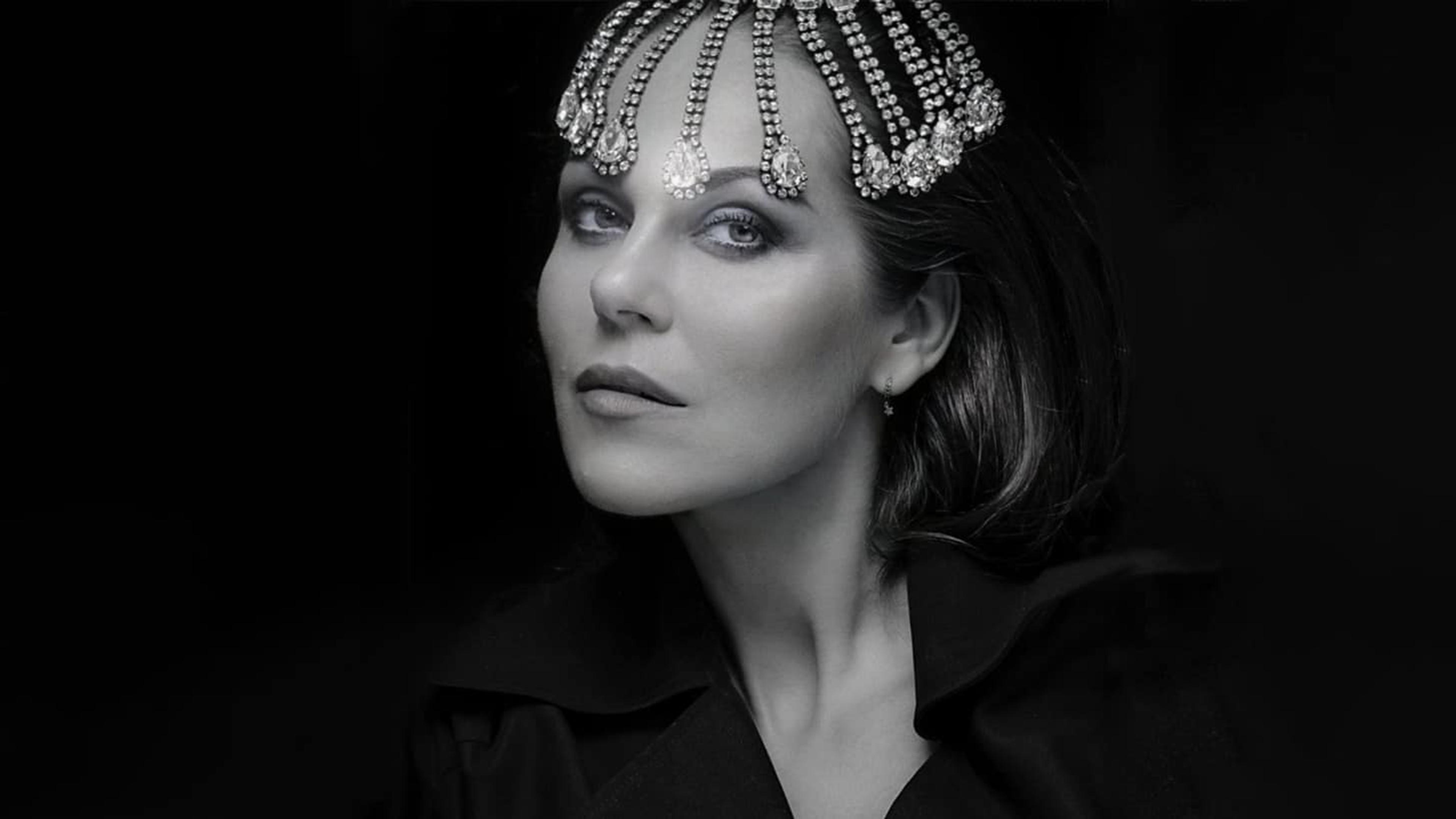KristineOpolais


Press
Lady Macbeth of Mtsensk
Boston Symphony Hall / Carnegie HallJan 2024Opolais remained onstage, once again blank and still, Katerina a ghostly presence as her own death unfolds. Her acting was riveting, colored by her sensitivity to the words, and well served by her singing. Overall this was an imaginative and powerful performance.
- Bachtrack
- 28 January 2024
Kristine Opolais sang Katerina as the exegesis of femininity. By the end of the night, it was more than attested that her Katerina had few doubts about her desirability or her right to be the center of attention. As a result, the character became a bit more of a tragic heroine and less of a psychological study of a distant cousin of Madame Bovary. Opolais’ voice, significantly more lyrical than the Wagnerian army that has embraced the role in the last few decades, worked well in creating dignifying sounds, especially during the inner monologues that make the character so welcoming. Her pianos are almost spoken, without any vibrato, in a smooth and bright voice that progressively unwraps into a volcanic cornucopia of vibrato in the fortissimos.
- Opera Wire
- 28 January 2024
She’s the kind of sympathetic, perceptive Katerina that justifies Shostakovich’s description of his heroine as a tragic figure. Katerina’s opening “I can’t sleep” aria can sound annoyed and entitled; Opolais is both humble and sad. Her soprano is full even in the upper register (where Shostakovich frequently sends Katerina), she’s not overwrought, and her enunciation is good enough to let you hear most of the Russian text. At the end of “I can’t sleep,” she makes a mournful three syllables out of “kupchikhe” (“merchant’s wife”); when it’s time for bed at the end of the day, she’s piteous in singing of the “doors with locks on them.” Her “Foal” aria is serene; she caresses the word “laskaet” (“caress”) and rises to “nikto” (“no one”) without shrieking. She sheds a tear for Zinovy before declaring that Sergei is her real husband; her lament for Boris sounds almost genuine, as opposed to the usual parody; against a luminous orchestral background, she’s radiant in telling Sergei “Your business is to kiss me.” (That doesn’t stop him from falling asleep.) Opolais’s acting, mostly with her face, is nuanced and intelligent and evinces a sense of humor. Her final aria, in which Katerina likens her conscience to the huge black waves of a lake in the wood, is quietly chilling.
- Classical Scene
- 28 January 2024
In the role of Katerina Ismailova, Opolais was singing her third performance in a series of concerts of the Shostakovich masterwork. Opolais relished the role giving us different facets to her character. In the first act aria, she displayed a more secure personage and played into the satirical elements of Katerina’s boredom. Her phrasing was a bit more exaggerated but the legato line remained smooth and cool as she sang about boredom. But that quickly evolved into something seductive and chaotic as she yielded to the advances made by Brenden Gunnell’s Sergey. The voice obtained a wild energy and blossomed on the high notes emphasizing the sexual tension of the scene. The articulation was also clear and well-accented and you could feel that Opolais was taking in each phrase with joy. During the Act two duet that opens with Sergey and Katerina, Opolais and Gunnell caressed each line with lyrical phrases that reflected the ethereal nature of their relationship. That would quickly turn during the confrontation with Günther Groissböck’s Boris Ismailov. Here Opolais’ voice opened up as she sang the wild syncopated lines of Shostakovich’s music with vigor, her voice climbing with incredible flexibility over the heavy orchestra. Her high notes also brought immense power into the hall. In the second scene of the second act, one started to see Opolais’ Katerina change. Here Opolais gave into the tremor and fear of the character as she sang some of her lines with an eerie pianissimo whisper. There were also many disconnect lines and the sound turned to a straight tone, perfectly effective for the moment. The Act four aria, where Katerina is pushed to her limits, saw the soprano at her most dramatic. She sang with a lyrical line that emphasized the text with clarity. Then there were moments where she almost spoke the line with a shudder and other moments where you could just hear her voice reflect a lament. It was powerful in every way. At the end of the night, Opolais received a well-deserved massive ovation as she proved once again why she is one of the best singing actresses currently performing. In 2025, audiences will get to see her Katerina in Leipzig, but let’s hope the soprano is allowed to return to the New York stage and audiences won’t have to wait another five years for her next appearance.
- Opera Wire
- 31 January 2024
She remains a magnetic stage presence, here able to convey Katerina’s loneliness, desperation and vicious amorality through her facial expressions alone. It was a remarkable piece of acting, especially given the confines of a concert performance.
- Financial Times
- 01 February 2024
Madama Butterfly
Teatro di San CarloApr 2023Kristine Opolais's Cio -Cio-San was not a fragile fifteen-year-old, but a knowing, strong woman who chose love for Pinkerton as her destiny. She sensed from the beginning that the dream of American marital happiness was fragile, so her suicide was the decision to give her son the chance of a life in America. With a pleasantly rounded soprano, she displayed strength in the top notes, an irrepressible creative will and quite demonstrative gestures.
- Ioco
- 08 April 2023
Tosca
Theater an der WienJan 2023Assolutamente inarrivabile scenicamente e vocalmente Kristine Opolais, che riesce ad incarnare con convinzione e assoluta credibilità questa Tosca innovativa. La Opolais ci presenta una donna moderna, volitiva, gelosa, pronta a tutto per salvare l’amato; il canto è teso ed espressivo con qualche asprezza di troppo, che però viene facilmente perdonata in una prova d’insieme assolutamente maiuscola. [Translated] Kristine Opolais is absolutely unmatched scenically and vocally , managing to embody this innovative Tosca with conviction and absolute credibility. Opolais presents us with a modern, strong-willed, jealous woman, ready to do anything to save her beloved ; her singing is tense and expressive with a little too much harshness, which however is easily forgiven in an absolutely capital ensemble performance.
- Opera Teatro
- 01 February 2023
Kristine Opolais spielt und singt die Titelheldin mit höchster Expressivität und Dramatik bis zur Selbstaufgabe. Ihre Darstellung geht unter die Haut. [Translated] Kristine Opolais plays and sings the title heroine with the utmost expressivity and drama, to the point of self-sacrifice. Her portrayal gets under your skin.
- Opera Online
- 22 January 2023
Kristine Opolais meistert Kušejs darstellerische Herausforderungen (man möchte sagen: Zumutungen) ganz grandios. [Translated] Kristine Opolais masters Kušej's acting challenges (one might say: unreasonable demands) brilliantly.
- Bachtrack
- 20 January 2022
Rusalka
Bayerische StaatsoperJul 2021Kristīne Opolais glänzt in der Titelrolle nicht nur gesanglich mit ebenso durchschlagskräftigen Höhen wie sehnsuchtsvoll lyrischer Wärme, mit der sie ihren Tagträumen (nicht nur im „Lied an den Mond“) nachhängt. Auch die physische und psychische Verkörperung ihrer Figur, der Kušejs bizarre Einfälle schauspielerisch wirklich Etliches abverlangen, gelingt ihr überaus glaubwürdig. [Translated] Kristīne Opolais shines in the title role, not only vocally with powerful highs as well as wistful lyrical warmth with which she indulges in her daydreams (not only in “Song to the Moon”). She also succeeds in the physical and psychological embodiment of her character, from whom Kušej's bizarre ideas really demand a lot in terms of acting, in an extremely believable way.
- Magazin Klassik
- 18 July 2023
Kristine Opolais ist eine Rusalka, die speziell in diese Inszenierung passt. Nicht die naive Wassernixe, die sich zärtlich und phantasieverloren nach der Menschwerdung sehnt, sondern die durchaus einen, weil mit ungewohntem Engagement verfolgten, ernstzunehmenden Versuch unternimmt, ihr Dasein zu ändern. Zu diesem Rollenbild passt ihre fast dramatische vokale Interpretation der Rusalka. [Translated] Kristine Opolais is a Rusalka who particularly fits into this production. Not the naive water nymph who tenderly and imaginatively longs to become human, but who makes a serious attempt to change her existence, pursued with unusual commitment. Her almost dramatic vocal interpretation of the Rusalka fits this role model.
- Opera Online
- 29 July 2021

